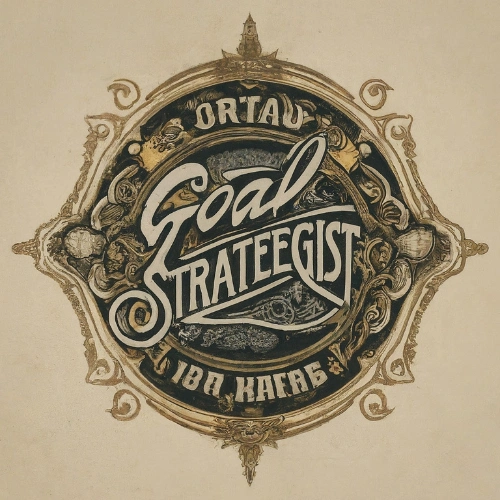Choosing the right course is a pivotal step in achieving your professional and personal aspirations. It’s like setting the coordinates for your career GPS, guiding you to your desired destination. Whether you’re aiming to climb the corporate ladder, launch your own business, or simply broaden your knowledge base, the course you select can be a game-changer.
Your goals are unique, and so is the path to reach them. The right course acts as a catalyst, equipping you with the skills, knowledge, and confidence to turn your dreams into reality. It’s not just about the credentials; it’s about personal growth and opening doors to opportunities you’ve yet to imagine.
The Importance of Choosing the Right Course
When you’re on the hunt for the perfect course, it’s like scouring a map before a major journey. The decisions you make can have profound effects on your career trajectory and personal fulfillment. You’re not just signing up for classes; you’re carving the path to your future.
Selecting the right course is pivotal for a number of reasons. Here’s what stands to be gained:
- Skill Enhancement: Your chosen course will equip you with industry-specific skills that make you an asset to potential employers.
- Networking Opportunities: You’ll meet like-minded individuals and professionals who could play a pivotal role in your career advancement.
- Better Job Prospects: With targeted education, you’re more likely to land a job that’s perfectly aligned with your career aspirations.
Every course offers its own mix of theory and practice, but it’s essential to pick one that provides a balance suitable to your learning style. Find a program that challenges you, fosters innovation, and encourages critical thinking. These faculties are invaluable in today’s ever-evolving job market.
Additionally, aligning your course with your career goals ensures that your time and financial investment pays off. It’s not just about obtaining a piece of paper to hang on your wall; it’s about crafting a résumé that resonates with your dream job’s requirements.
A strategically chosen course can unlock doors you didn’t even know existed. Plus, the confidence you gain from mastering relevant competencies is immeasurable. This confidence permeates your professional demeanor, setting the stage for interviews, networking, and daily workplace interactions.
Remember, your education is more than just a means to an end; it’s a foundational element that supports your entire career-building edifice. As you weigh your options, consider the curriculum, the faculty’s expertise, and how a particular course will help bridge the gap between where you are now and where you aim to be.
Defining Your Goals

Before plunging into the myriad of course offerings, define what success looks like to you. Understanding your career objectives is akin to setting a target; without it, you can’t aim effectively. Start by reflecting on your passions and how they translate into viable career opportunities. Envision where you’d like to be in five, ten, or even twenty years. This isn’t just about job titles but encompasses the skills and experiences you aspire to gain.
Ask yourself pivotal questions:
- What are my primary interests?
- Which skills do I need to develop or refine?
- What does my ideal career path entail?
Documenting your answers can crystallize your objectives and serve as a compass as you navigate your educational journey.
Once you’ve outlined your goals, research how different courses align with these ambitions. Prioritize those that offer practical experience and match your learning preferences. Some learners thrive in interactive, discussion-based settings, while others excel through self-paced study. If leadership is part of your career plan, seek out courses that include project management or team leadership components. For technologically-driven aspirations, ensure the curriculum is up-to-date with the latest industry standards and emerging trends.
Remember, your goals are not static; they evolve as you grow personally and professionally. Revisiting and refining your goals throughout your career is not just recommended, it’s essential. Engaging with mentors, industry experts, and alumni can help you gain insights into how your goals might shift over time. Keep an open mind and consider how emerging sectors may offer unexpected opportunities that align with your refined objectives.
By clearly defining your objectives, you establish a framework within which to measure the effectiveness of prospective courses. This strategic approach helps in making informed decisions that align with both your immediate and future professional aspirations.
Identifying the Skills and Knowledge Required

Once you’ve pinned down your goals, it’s time to drill into the specifics. Start by dissecting the job descriptions in your field of interest. Companies often list the skills and knowledge they’re expecting in an ideal candidate. Your task? Match your course selection to these requirements. But it’s not just about ticking boxes – you’re aiming to enhance your employability and elevate your expertise.
List the common skills sought after in your field. Do they require coding expertise, analytical prowess, or maybe a knack for digital marketing? Skills can generally be split into two categories: hard skills—Your technical know-how—and soft skills such as leadership and communication. Both categories are pivotal, but often, courses are more focused on hard skills, so ensure you’re giving soft skills the attention they deserve.
Research into your chosen industry will reveal the knowledge base you need to build. Look into:
- Industry trends
- Emerging technologies
- Best practices
- Regulatory requirements
Consider the dynamics of your preferred industry. Is it evolving rapidly, like technology or digital marketing? If so, a course in continuous learning or adaptive thinking could be invaluable.
Connect the dots between your goals and the required skills and knowledge. Courses that bridge this gap will offer the most value to you. As you evaluate options, look for programs that boast a strong link to industry. Partnerships with companies or internship opportunities can be golden tickets to real-world experience. They translate theoretical knowhow into practical prowess and can give you a considerable edge in the job market.
By thoroughly understanding the competencies you need, and choosing a course wisely, you position yourself at the forefront of your chosen career path. With the right skills and knowledge, you’re not just meeting the standard – you’re setting it.
How the Course Aligns with Your Goals
When choosing a course, it’s crucial to ensure it serves as a stepping stone toward your ultimate objective. Alignment is the keyword here; your chosen course should align with the career trajectory you’ve envisioned. Ask yourself if the course content reflects the skills and knowledge you need to acquire. For instance, if leadership is your aim, does it offer modules on team management or conflict resolution?
The true test of alignment can often be found in the course structure. Practical experience and real-world application of theoretical knowledge can be invaluable. Check for:
- Internships
- Project-based assessments
- Industry-standard tools and software
Each of these components indicates a course’s relevance to professional practice and can vastly enhance your employability.
Dig into the course outcomes; they’re a blueprint of what you’ll learn and achieve upon completion. Courses that detail clear outcomes related to your goals are likely to be more beneficial. If you’re aiming for a role in a data-driven industry, does the course cover data analysis, interpretation, and reporting? Every skill listed in the outcomes should be a building block for your career aspirations.
Another aspect to consider is network expansion. Courses that promote networking opportunities through events, alumni associations, and industry engagement can propel you into the professional circles you aim to join. It’s not just about what you’ll learn but also who you’ll meet along the way.
Lastly, assess the credentials of the faculty and their industry relevance. Renowned professionals and academics can provide mentorship and insight that textbooks cannot.
Remember, you’re investing not just your money but also your time. Ensuring your course aligns with your goals is an investment in your future – one that should not be taken lightly. Keep the course features and outcomes in close check with what you aim to achieve, and don’t hesitate to reach out to course advisors for clarification. Your education should be a tailored fit to your career ambitions.
Gaining Confidence and Personal Growth
When you acquire new knowledge and skills, your confidence skyrockets. Feeling competent and being seen as an expert in your chosen field can drastically improve your self-esteem. As you progress through your course, you’ll face challenges and solve problems, which serve as excellent triggers for personal growth and confidence building.
Reflection and self-assessment play a crucial role in this transformative journey. Through course assignments and interactions, you’ll develop a stronger sense of self-awareness. Your ability to critically evaluate your work and seek feedback helps you understand your strengths and identify areas for improvement.
Participation in class discussions and group projects is not just about gaining knowledge; it’s also training in assertiveness and communication. These interactions contribute significantly to developing interpersonal skills and leadership qualities. The right course pushes you to step out of your comfort zone, enhancing your adaptability and resilience.
Networking events and guest lectures embedded in your curriculum provide more than just learning opportunities; they offer arenas for you to practice and manifest your growing expertise. Engaging with peers and industry professionals helps to refine your professional persona and networking skills.
Remember, personal growth isn’t confined to the mastery of hard skills. Soft skills such as time management, teamwork, and problem-solving are equally beneficial and tend to improve with continuous practice and application. With real-world scenarios often built into courses, you’ll find ample opportunities to apply theoretical knowledge and see a tangible impact on your capabilities.
By selecting a course that stretches you intellectually and personally, you’re not simply acquiring qualifications; you’re sculpting the very foundation of your professional future. Courses that encourage self-directed learning foster a mindset geared towards ongoing development, a vital attribute in today’s fast-paced world.
Opening Doors to New Opportunities

Your path to success isn’t just about what you know; it’s also who you know and what opportunities you can seize. Choosing the right course can turn the key to unlock doors to new possibilities that align with your aspirations. It’s crucial to select a program that not only teaches you the fundamentals but also provides a clear pathway to the places you want to go.
Networking is an integral part of growth in any industry, and the right course will introduce you to like-minded students, professionals, and mentors. This network becomes invaluable as you navigate your career. Whether you’re looking for your first job, seeking a mentor, or aiming to stay ahead of industry trends, the connections you make in your academic journey can play a pivotal role.
Here are some ways your selected course can open up new opportunities:
- Access to exclusive job portals and career fairs
- Invitations to industry conferences and events
- Partnership projects with leading companies
- Alumni networks that provide a community of support and advice
Moreover, a course with a solid reputation increases your marketability. Employers often recognize the value of certain programs and may prioritize candidates with specific educational credentials. Diplomas and degrees from esteemed institutions can be a badge of honor that opens doors which might otherwise remain closed.
In a marketplace where innovation is key, your course should expose you to the latest industry-standard tools and software. Mastery of these technologies not only makes you more efficient but also more adaptable and valuable to prospective employers.
Remember, learning extends beyond the classroom. The experiences and insights gained from practical applications during your studies ensure you are not just ready for the job market, but that you stand out in it. Look for courses that emphasize experiential learning, so you can showcase real-world problem-solving abilities that are highly sought after.
When assessing courses, consider how they will help you build a bridge towards the opportunities you are seeking. Industry relevance, quality of placement, and the extent of career support services are clear indicators of how a program might pave the way for your future endeavors.
Conclusion
Choosing the right course is a pivotal step in bridging the gap between where you are and where you want to be. By aligning your education with your career aspirations you’ll equip yourself with the necessary skills and knowledge to excel in your chosen field. Remember to seek out programs that offer practical experience and industry connections to enhance your learning journey. As you grow intellectually and personally through your studies you’re setting the stage for a fulfilling and successful career. Stay proactive in your education and career planning and you’ll be well on your way to achieving your goals.


Leave a Reply